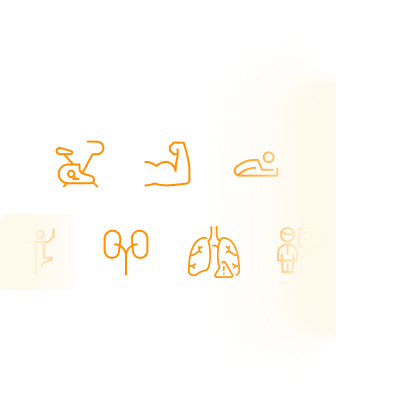COPD and incontinence
Urinary incontinence is the unintentional passing of urine. It's a common problem thought to affect millions of people.1
There are several types of urinary incontinence, including:1
Stress incontinence
When urine leaks out at times when your bladder is under pressure; for example, when you cough or laugh
Urge (urgency) incontinence
When urine leaks as you feel a sudden, intense urge to pee, or soon afterwards
Overflow incontinence (chronic urinary retention)
When you're unable to fully empty your bladder, which causes frequent leaking
Total incontinence
When your bladder cannot store any urine at all, which causes you to pass urine constantly or have frequent leaking
What causes urinary incontinence?
Overflow incontinence occurs when something blocks or obstructs the bladder, stopping it from emptying fully. Total incontinence is less common and can be due to conditions present from birth, spinal injuries, or a small tunnel-like opening (fistula) that forms between the bladder and a nearby area, allowing urine to leak continuously.1
What can you do about urinary incontinence with COPD?
In most cases, urinary incontinence can be diagnosed during a GP consultation. They will ask about your symptoms and may carry out an examination.1
Treating urinary incontinence
The type of treatment you receive will depend on the type of urinary incontinence you have and the severity of your symptoms.
If it is caused by an underlying condition, you may receive treatment for this alongside incontinence treatment. Conservative treatments, which do not involve medicines or surgery, are tried first and can include lifestyle changes, pelvic floor muscle training (Kegel exercises), and bladder training.2

Pelvic floor exercises for urinary incontinence
How to find your pelvic floor muscles
- Pelvic floor exercises can be effective at reducing leaks. It's important to do them properly and include short squeezes and long squeezes.4
- You can feel your pelvic floor muscles if you try to imagine stopping yourself peeing.4
How to exercise your pelvic floor muscles5
Sit comfortablySit, stand, or lie down, whichever you find most comfortable, and relax your thighs and buttocks
Tighten musclesImagine you are urinating and tighten your muscles as if you’re trying to stop mid-flow. Hold for 10 seconds, then relax. Try not to hold your breath and keep breathing normally
RepeatRepeat the exercise up to 10 times
Try fast holdsYou can also try repeating the same actions as with the slow exercises, but this time try tightening the muscles as quickly as possible
Make it routineYou may want to try mixing slow and fast exercises a few times each day. Incorporating them into your routine may also help but remember to not overdo it — your pelvic floor is like other muscles and can get tired.
You might find that you can’t hold for 10 seconds to start with. Hold it for as long as you can and try to build up to 10 seconds. It’s more important to do the exercises properly than to rush to get to 10 seconds.
Tips to help avoid incontinence4
Stop smoking
Do the right exercises
Avoid lifting
Lose excess weight
Treat constipation promptly
Cut down on caffeine
Cut down on alcohol
Drink plenty of water
Eat the right foods
For information on living well with COPD, see our ‘Living with COPD’ pages.
Healthcare team could include a GP, nurse, pharmacist, physiotherapist, dietitian, occupational therapist, counsellor and stop smoking advisor.
Healthcare team could include a GP, nurse, pharmacist, physiotherapist, dietitian, occupational therapist, counsellor and stop smoking advisor.
Abbreviations:
References:
- NHS. Urinary incontinence overview. Available at https://www.nhs.uk/conditions/urinary-incontinence/. Accessed November 2025.
- NHS. Urinary incontinence non-surgical treatment. Available at https://www.nhs.uk/conditions/urinary-incontinence/treatment/. Accessed November 2025.
- NHS. Urinary incontinence symptoms. Available at https://www.nhs.uk/conditions/urinary-incontinence/symptoms/. Accessed November 2025.
- NHS. 10 ways to stop leaks. Available at https://www.nhs.uk/conditions/urinary-incontinence/10-ways-to-stop-leaks/. Accessed November 2025.
- NHS. Royal Free London. Available at https://www.royalfree.nhs.uk/patients-and-visitors/patient-information-leaflets/pelvic-floor-exercises-male-patients. Accessed 2025.